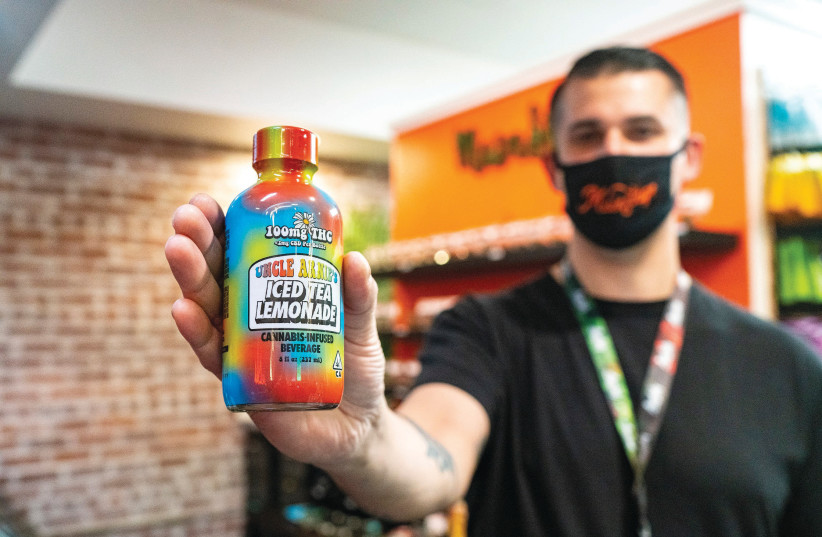More than 3,000 US children aged five and under accidentally ingested cannabis edibles in 2021 – an increase of 1,375% from 2017, when there were just over 200 such cases – according to a US National Poison Data System study released Tuesday.
The study, published Tuesday in the peer-reviewed pediatric research journal Pediatrics and based on over 7,000 pediatric cases reported to the National Poison Data System – found that around 97% of the 3,000+ children who fell ill as a result of eating the marijuana edibles found the edibles in their own house.
A little over half of the cases of accidental THC edible consumption concerned children aged two or three, while 18% of the cases were four-year-olds, 15% were one-year-olds and 13% were five-year-olds. Infants accounted for 1.9% of the calls to the center.
"This age group accounts for about 40% of all calls to poison centers nationally. They (kids) can get into things, and you can't really rationalize with them."
Marit Tweet
"This age group accounts for about 40% of all calls to poison centers nationally," Marit Tweet, an emergency medicine doctor at SIU Medicine in Springfield, Illinois and the lead author on the study, told NPR.
"They (kids) can get into things, and you can't really rationalize with them," Tweet explained regarding the dangers of children ingesting the wrong things.

Weed legalization and edibles marketing
By 2017, just eight US states and the District of Columbia had legalized recreational cannabis use, while 30 allowed it for medicinal purposes. By 2021, those numbers had grown significantly to 19 and 40, respectively.
Weed edibles, while certainly not for consumption by non-adults, often come in the form of appetizing treats – such as brownies and candies – and have increasingly been sold in packaging that looks like common edible products and looks familiar to pantry staples like Oreos and Gushers candy.
“My stance is that it is not a problem that these products are legalized, but the problem is that they’re not packaged the way drugs or medications are packaged. We have a lot of safeguards in place for that,” study co-author Dr. Antonia Nemanich, who works in emergency medicine and medical toxicology at Rush Emergency Medicine in Chicago, told CNN.
“They’re marketed as if they’re just any other tasty treat.”
The fact that the children aren't aware of what they are ingesting can also exacerbate issues. Children are also unlikely to understand that weed edibles are meant to be ingested in small doses – such as one weed cookie per 100mg dose – and can mistakenly eat an amount that is unsafe even for adults.
“We wanted to catch this population of kids that are getting into this stuff unintentionally,” Nemanich said.
“We know they’re not seeking it out as a mind-altering substance. We knew subjectively they were at high risk because we’d see a lot of exposures in the ER, and they’re very likely to just put something in their mouth that looks tasty,” Nemanich, who hopes the results of the study will spur legislative change, concluded.
